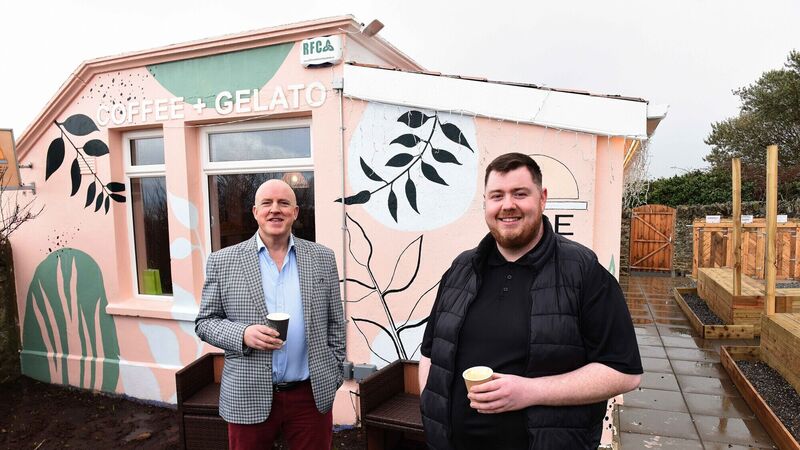Rebuilding after addiction: 'I got a glimpse of the other side, and I like it, I don't miss my old life'

Sean O'Reilly, right, a graduate of Tiglin and trainee cafe manager with Aubrey McCarthy, chairman of the organisation at The Rise cafe. "I just broke barriers with myself and made myself go down and work in the cafe," says Sean. Photo: Moya Nolan
Sean O'Reilly, 25, entered rehab for drug addiction at the height of the pandemic - October 2020.











